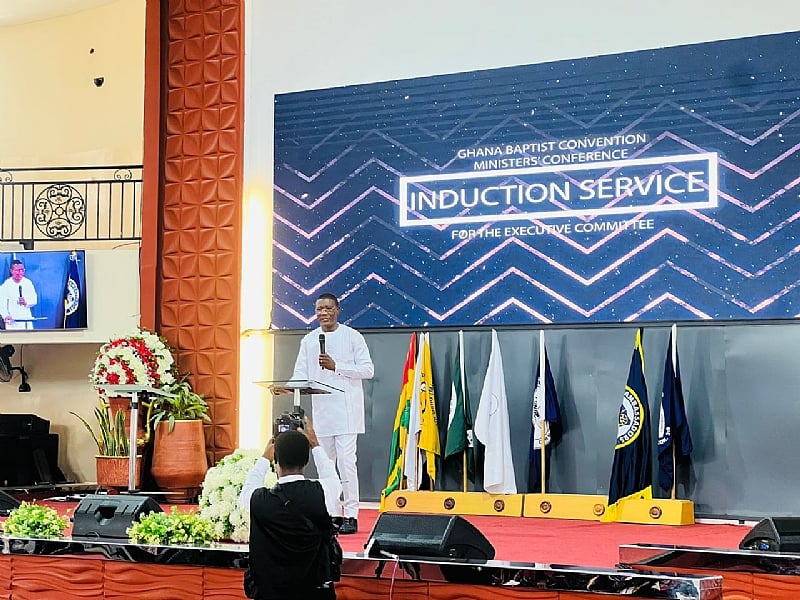Hon. Ashai Odamtten, Member of Parliament for Tema East, delivered a compelling keynote address at the induction service of the Ghana Baptist Convention’s Ministers’ Conference, urging the church to actively engage in governance and hold leaders accountable. The event, held at the First Baptist Church in Tema, brought together a diverse assembly of Baptist clergy, representatives from various denominations, and well-wishers. Odamtten’s central message emphasized the crucial link between faith and governance, calling upon the church leadership to bridge the gap between these two spheres and foster a more proactive role for the church in shaping the nation’s political landscape. He encouraged Christians to transcend political apathy and actively participate in the political process, advocating for policies that reflect Christian values and contribute to national development.
Odamtten challenged the audience to move beyond passive prayer and actively hold their elected officials accountable for their promises and policies. He posed a thought-provoking question, asking whether they could articulate specific political messages or demands they would hold him accountable for, ensuring their prayers for community development translate into concrete actions. This question highlighted the need for informed engagement with the political process, demanding transparency and accountability from those in power. The MP stressed the importance of scrutinizing political manifestos and government policies, urging the church to use these documents as tools for holding elected officials to their commitments. He used the example of a presidential promise to support private schools, encouraging the church to actively monitor the implementation of such promises and hold the president to his word.
The MP’s call for accountability extended beyond simply monitoring promises. He urged the church to actively engage in the political discourse, ensuring that policies align with Christian values and contribute to the overall well-being of the nation. He challenged the church to become a powerful voice in advocating for just and equitable policies, holding leaders accountable for their decisions and their impact on the community. This active engagement, he argued, is a crucial aspect of fulfilling the church’s role as a moral compass and a catalyst for positive change within society.
Furthermore, Odamtten encouraged the newly inducted executive committee to embrace their roles as ambassadors of Christ, not just within the confines of the church but also in the broader societal context. This ambassadorship, he argued, requires active participation in the affairs of the nation, ensuring that Christian values are reflected in the political landscape. He also emphasized the importance of collaboration and support between the outgoing and incoming executive committees, highlighting the power of unity in advancing the mission of the conference. This collaborative spirit, he suggested, would be essential for elevating the conference to new heights of influence and impact.
The MP’s message resonated with the theme of active and responsible citizenship, emphasizing the role of the church in shaping a just and equitable society. He challenged the attendees to move beyond passive observation and embrace their responsibility to influence the direction of the nation. His call to action was not merely a plea for political engagement but a call to live out their faith in the public sphere, holding leaders accountable and advocating for policies that reflect Christian principles of justice, compassion, and service. Odamtten framed political engagement not as an optional activity but as an essential component of Christian discipleship, urging the church to be a transformative force in the nation’s political life.
Finally, Odamtten concluded his address with a powerful charge to the entire church body, encouraging them to dare to act differently and lead by example in all their endeavours. This challenge encapsulated his broader message of active engagement and responsible citizenship. He called on the church to be a beacon of hope and a model of ethical conduct, demonstrating the transformative power of faith in the public square. By actively participating in governance, holding leaders accountable, and advocating for just policies, the church, he argued, could fulfil its calling to be salt and light in the world, contributing to the flourishing of the nation and the well-being of all its citizens.


